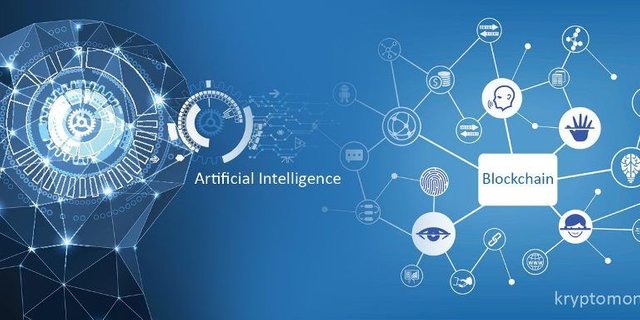How Artificial Intelligence Can Interact with Blockchain

Artificial Intelligence (AI) and blockchain are two of the most transformative technologies of the 21st century. While blockchain is renowned for its decentralized, secure, and transparent nature, AI excels in data analysis, pattern recognition, and decision-making. When combined, these technologies can create powerful synergies, enhancing each other's capabilities and opening new possibilities across various industries.
One of the primary ways AI can interact with blockchain is through data management. Blockchain provides a secure and immutable ledger for storing data, while AI can analyze this data to extract valuable insights. For instance, in supply chain management, blockchain can track the movement of goods, and AI can analyze this data to optimize logistics, predict demand, and detect anomalies such as fraud or inefficiencies.
Another area of interaction is in enhancing security. Blockchain's decentralized nature makes it inherently secure, but AI can further bolster this security by identifying potential threats or vulnerabilities. AI algorithms can monitor blockchain networks in real-time, detecting suspicious activities such as hacking attempts or fraudulent transactions. This combination can be particularly useful in financial systems, where security and trust are paramount.
Smart contracts, a key feature of blockchain, can also benefit from AI integration. Smart contracts are self-executing agreements with the terms directly written into code. AI can make these contracts more dynamic by enabling them to adapt to changing conditions. For example, an AI-powered smart contract in insurance could automatically adjust payouts based on real-time data, such as weather conditions or market trends.
Moreover, AI can improve the scalability of blockchain networks. One of the challenges of blockchain is its limited transaction speed and scalability. AI can optimize consensus algorithms, such as Proof of Work (PoW) or Proof of Stake (PoS), to make them more efficient. Additionally, AI can help in managing network congestion by predicting peak usage times and allocating resources accordingly.
In the realm of data privacy, AI and blockchain can work together to create more secure and private systems. Blockchain can ensure data integrity, while AI can enable privacy-preserving techniques such as federated learning, where AI models are trained on decentralized data without exposing the raw data itself. This is particularly useful in healthcare, where patient data must remain confidential.
Finally, AI can assist in the governance of blockchain networks. Decentralized Autonomous Organizations (DAOs) rely on community voting and consensus for decision-making. AI can analyze voting patterns, predict outcomes, and even suggest optimal governance models, making the decision-making process more efficient and transparent.
In conclusion, the interaction between AI and blockchain holds immense potential. By combining the strengths of both technologies, we can create more secure, efficient, and intelligent systems. From enhancing data management and security to improving scalability and governance, the synergy between AI and blockchain is set to revolutionize industries and pave the way for innovative solutions to complex problems.